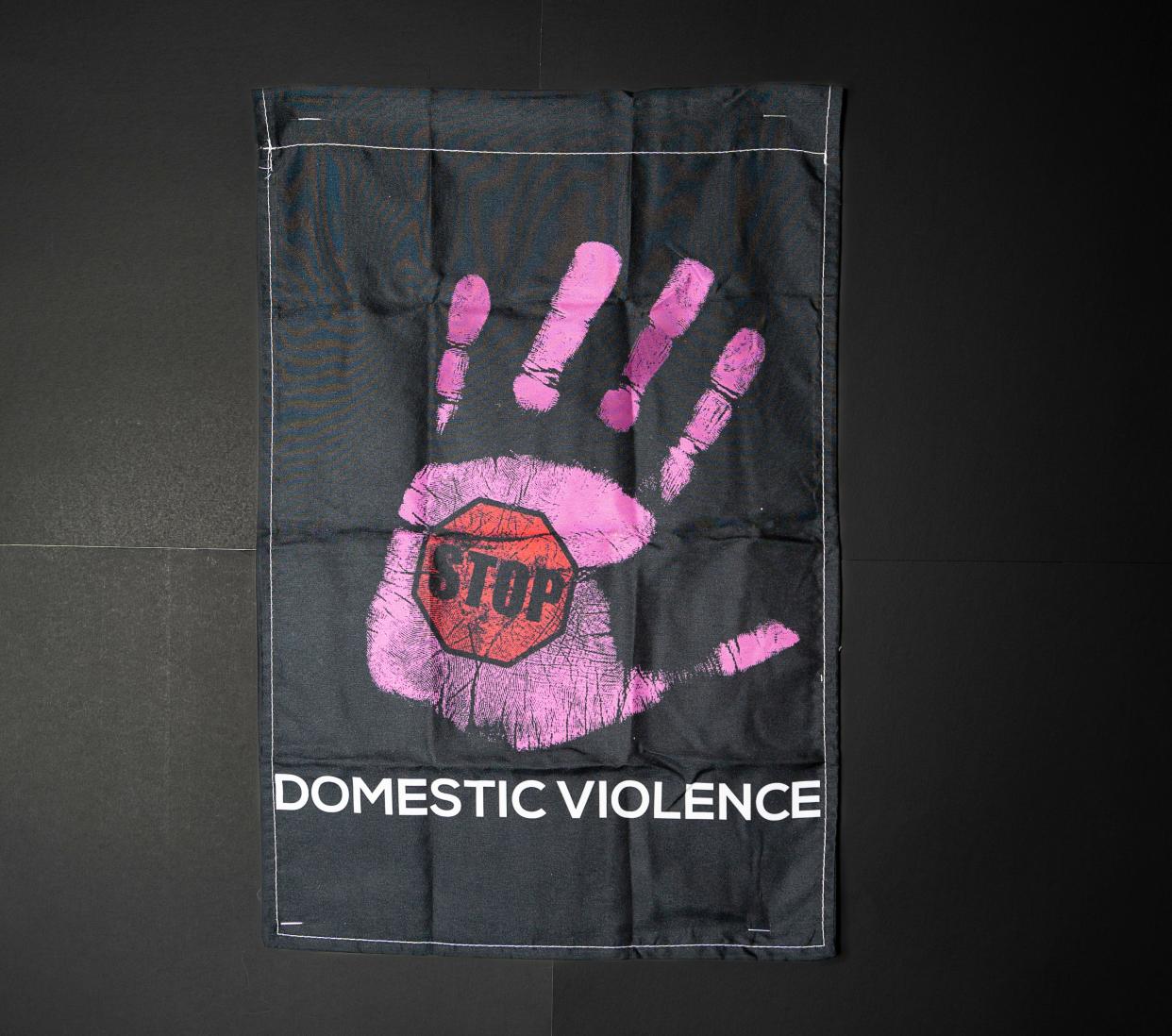Here are 7 culturally specific groups helping domestic abuse survivors in Milwaukee

When Kalon Fleming was in an abusive relationship, it was hard enough to find domestic violence services. It was even harder to find help from someone who looked like her and shared the same background.
There was a cultural gap that made her feel "judged."
"I felt I couldn't be as open and honest because this person didn’t know me," said Fleming, who left the relationship and moved to Milwaukee less than a year ago.
Fleming now is a case manager and victim advocate for The Asha Project, one of Milwaukee’s half-a-dozen small, but crucial, culturally specific service providers for survivors of domestic abuse.
The Asha Project, which serves the Black community, is part of a coalition of six other organizations that serve Latino, Native American, Hmong, LGBTQ+ and Muslim communities, called We Are Here MKE.
The organization formed in 2020 to raise awareness for its services as concerns mounted for those trapped in domestic abuse situations during stay-at-home orders for the COVID-19 pandemic. Its formation was spearheaded by Antonia Drew Norton, director of The Asha Project.
Four years later, concerns over domestic violence in Milwaukee are as high as ever. Annual counts of homicides related to domestic or intimate partner violence have doubled since the pandemic, according to the Medical College of Wisconsin.

In the four years prior to the pandemic, Milwaukee averaged nearly 15 per year. From 2020 through 2023, the city averaged almost 35.
So far this year, there have been 15 domestic violence-related homicides in Milwaukee County, with seven occurring in April, according to the Sojourner Family Peace Center, the largest service provider for survivors of domestic abuse in the state.
The trend has pushed We Are Here MKE to take additional steps at raising awareness about its culturally specific organizations. The group hosted a series of town hall events this spring and the Milwaukee Police Department recently began including the seven member organizations in its referral list for victims.
“They have to know that other options are out here,” said Norton, who stressed that We Are Here MKE organizations do not share office space with police, child protective services or prosecutors.
Advocates have said for years that victims of domestic homicide tend to not be connected to resources that can help them. Norton said We Are Here MKE organizations generally are able to spend more time with clients, allowing them to express themselves and build a level of trust.
“It’s about having a comfort level and an open door policy for victims,” Fleming said. “It’s easier to express and be honest and open about what you’re experiencing in your home, in your private life, with someone that looks like you, someone who’s been through the same situation.”
Milwaukee's culturally specific domestic violence prevention centers
Here is a list of the seven member organizations of We Are Here MKE, with links to their websites and basic contact information:
Serving the Black community: The Asha Project, 3719 W. Center St., Milwaukee, 414-252-0075.
Serving the LGBTQ+ community: Diverse & Resilient’s Room to be Safe program, 2439 N. Holton St., Milwaukee, 414-390-0444.
Serving the Native American community: Gerald L. Ignace Indian Health Center, 930 W. Historic Mitchell St., Milwaukee, 414-383-9526; and the HIR Wellness Institute, 3136 W. Kilbourn Ave., Milwaukee, 414-763-5815.
Serving the Muslim community: Milwaukee Muslim Women’s Coalition, 5235 S. 27th St., Greenfield, 414-727-4900.
Serving the Hmong community: Hmong American Women’s Association, 3727 W. National Ave., Milwaukee, 414-930-9352.
Serving the Latin American community: UMOS Latina Resource Center, 2701 S. Chase Ave., Suite D, Milwaukee, 414-389-6500.
Contact Elliot Hughes at [email protected] or 414-704-8958. Follow him on X at @elliothughes12.
This article originally appeared on Milwaukee Journal Sentinel: 7 culturally specific Milwaukee groups helping domestic abuse survivors
